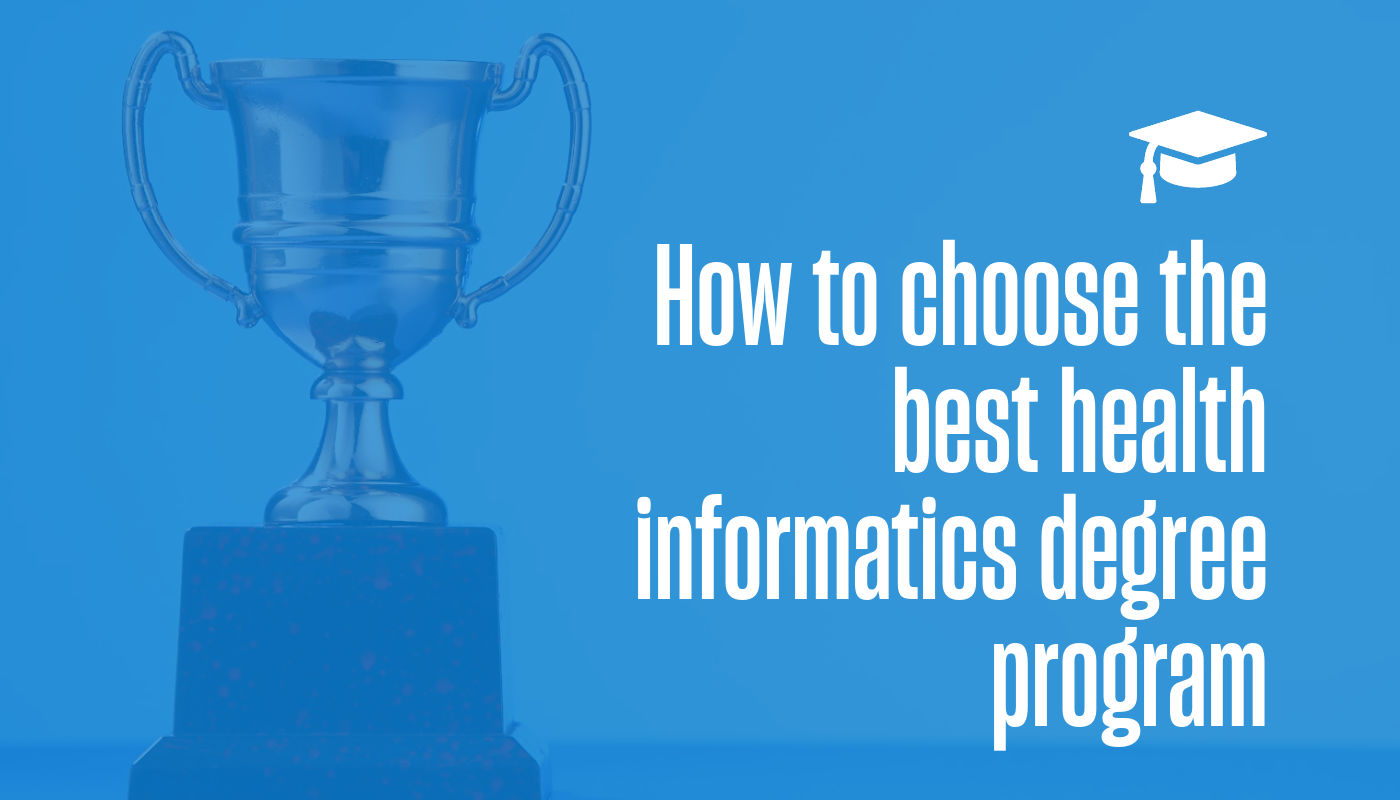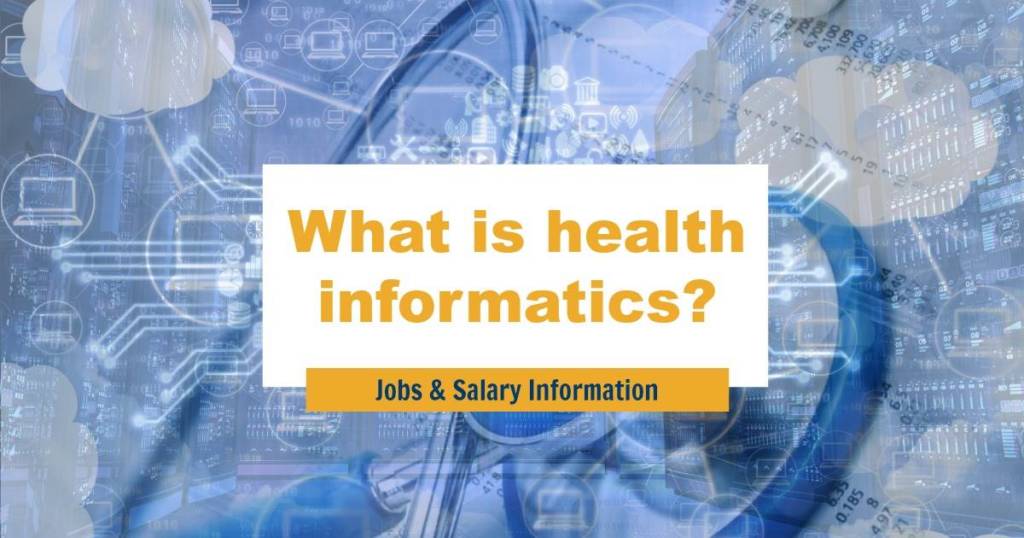You’re considering expanding your career into the field of health informatics and you know you will need some additional education in order to make the move successful. But how do you know what health informatics degree program is best for you? Here are a few questions to ask yourself, and a couple considerations to keep in mind when you are comparing programs.
What level of education do you want?
A master’s level program will be much more rigorous than a few courses on informatics, a certificate program or even an associates or bachelor’s degree in health information management. But if you are serious about landing a job in informatics and growing within the field, a master’s degree is typically the right choice.
[RELATED] Health Informatics: Master’s Degree vs. Certificate Program – Which is Best for You? >>
In what capacity within the health informatics field do you wish to work?
If you are a nurse looking to apply technology and data to improve patient care, advanced training and certification in nursing informatics may be the correct path. However, if you are in health information management or other IT discipline and looking for a program of study that will teach you how to use data and analytics to improve overall human health in a variety of environments, a health care informatics degree is the better choice.
Health informatics professionals are expected to have expertise in both IT and healthcare, so the degree program you select should offer a combination of classes across both disciplines. Additionally, since informatics is so critical to the success of modern healthcare organizations, the better programs will place an emphasis on teaching leadership, management and business strategy as well as technical and analytic skills.
[RELATED] Healthcare Informatics Jobs and Salaries: What You Need to Know >>
How do you want to learn? Online, in-person or a combination of the two?
Committing to a degree program is a big decision, especially if you are already working full time. Understanding that the needs and schedules of adult learners are different from those of the typical college student, many universities have started offering health informatics programs through evening classes or 100% online.
Would the flexibility of an online format help you to better balance school, work and family life? Or do you prefer learning in person? Maybe you’re intrigued by the online approach but not sure how you will do with distance learning. If that’s the case, ask the university you are considering for more details about their online learning environment and see if they can give you the names of other students in the program who could share their experiences.
Evaluating the quality of a health informatics master’s degree program
In addition to asking yourself the questions listed above, it is important to evaluate the overall quality of the program and the university you are considering. Read the biographies of the faculty who will be teaching the course material. Do they hold advanced degrees? Are they currently working in the field? Another important quality indicator is accreditation, which is a stamp of approval that ensures you will be able to obtain financial aid, as well as transfer your credits if you decide to switch schools. Most state universities and private non-profit universities will have a regional accreditation, and many health informatics programs have received an additional endorsement from HIMSS or CAHIIM. Finally, understanding the reputation and academic rigor of the program is important — not only for the obvious reason that you will receive a higher quality education but also because a high caliber program will attract knowledgeable, intelligent and experienced students with whom you’ll be able to network.
A final note about quality: recent closures of some for-profit colleges illustrate why it is so critical to choose an established university, ideally one that has a physical campus and a longstanding history of educational commitment. Taking all of these elements into consideration will help ensure that your degree will hold value over the years.
[RELATED] Is a Health Informatics Degree Worth It? >>
As you research the different health informatics program options, remind yourself that earning your master’s degree from a top university will help enhance your resume and make you more marketable to employers. The University of San Diego offers a Master of Science in Health Care Informatics that will prepare you for certification by HIMSS, ANCC or AMIA and also offers the flexibility to specialize in coursework focused on health data analytics or health informatics. To learn more about this practical and flexible health informatics degree program that is available both on-campus in San Diego and 100% online, speak with an admissions advisor today.




